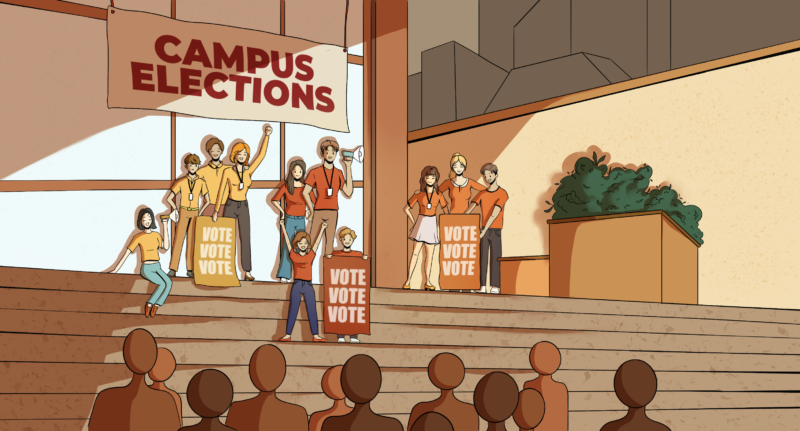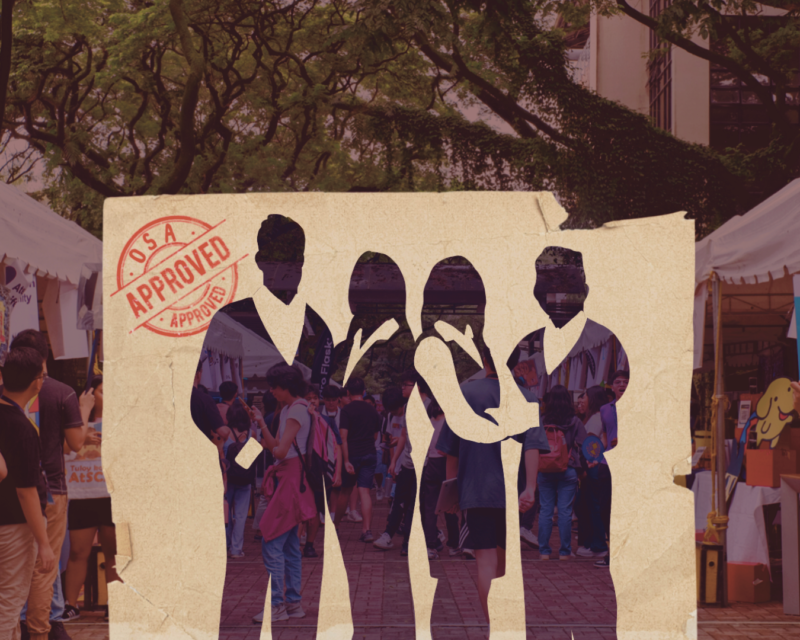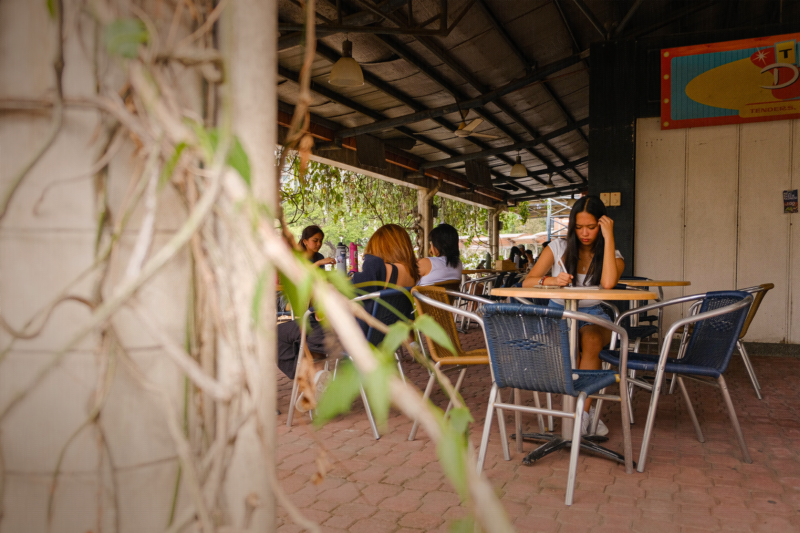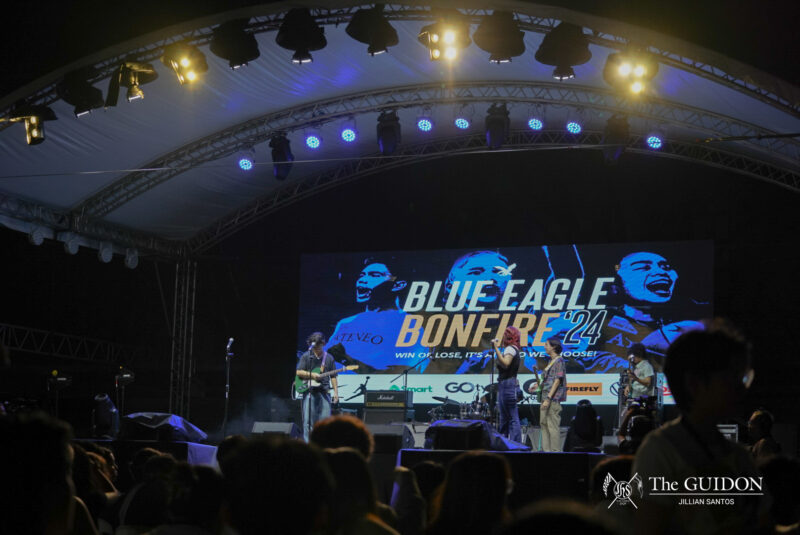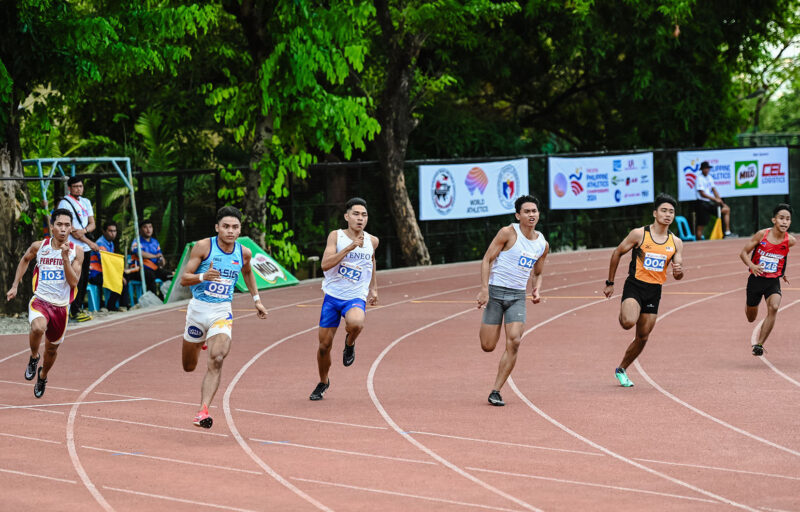NO STUDENT left behind—this was one of the pleas that 500 Ateneans rallied behind as they signed a petition dated November 14, 2020 calling for a nationwide academic strike. The petition authors demanded accountability from the national administration’s response to the calamities that swept the country. The submission of academic requirements was withheld, earning the spotlight of media outlets and the dismissive remarks of government officials under President Rodrigo Duterte’s wing.
The traction that the strike petition garnered boosted engagement among members of the student body regarding campus and national issues. However, the petition’s broad demands and objectives, the constituency check’s binary voting system, and the unclear response from the University administration on pressing political issues seem to have created a divide among students and faculty alike.
Intense debate
The initial petition’s release prompted conflicting views to circulate online, where the strike’s effectiveness in catalyzing reforms across the University and national government fronts were placed at the forefront of debate. In an interview with The GUIDON, Associate Dean for Student Formation Leland Dela Cruz, PhD says that the petition’s multiple revisions, coupled with its “unclear” objectives, contributed to the community’s confusion in their stand.
“If you are going to demand things from the national government, why are you doing things that will affect yourselves as students, or the University?” Dela Cruz explains.
Strike organizers Elise Ofilada (3 BFA CW) and Bernardine de Belen (3 BFA CW) acknowledge that the initial petition was not completely nuanced. However, they hoped that the discussion would not entirely focus on the strike’s semantics, citing criticisms regarding the use of “criminal negligence” that surfaced as an example.
Ofilada and de Belen also remark that there are more important matters to discuss regarding the student strike. “I think nandoon pa rin iyung kahalagahan na maganap iyung conversation at pag-protesta ngayon kasi concrete iyung mga… paghihirap na dinaranas ng mga tao (It’s still important to have these conversations and continue protesting because people are facing concrete problems),” de Belen says.
Although the LS community partly expressed concern over the petitions’ semantics, this was only one aspect of the debate. School of Humanities Representative Matt Rodriguez mentions that the nature of the petition “disturbed” members of the Ateneo community because it desired social change at the expense of academics. “The voting didn’t really consider the fact that this gave a chance [for representation] to those that kind of lost a lot—who didn’t really have a choice at all,” Rodriguez says.
Besides this, School of Social Sciences Representative TJ Alcantara believes that the Ateneo community would have been less divided had the voting not occurred. “[P]uwede kang sumali sa strike, puwede kang sumali sa other forms of mobilization pero hindi dapat mahati or hindi dapat mapilit na either you’re pro-strike or you’re against the strike (You could have joined the strike, or other forms of mobilization without being labeled as being for or against the strike),” he says.
Following the Central Assembly’s (CA) denial of the motion, LS students criticized the constituency check’s binary system and stressed the importance of taking constituents’ various reservations into consideration. The GUIDON also conducted a survey regarding the students’ perceptions on the revised petition to determine the larger community’s pulse on the matter. However, only 1.41% of the student population or 132 students answered the survey; 53.8% affirmed their participation in the strike if revisions based on their concerns were made.
Nonetheless, Alcantara clarifies that there were suggestions to place “yes with reservations,” and “no with reservations” in the Sanggunian’s constituency check. However, he explains that these suggestions were overturned upon consultation with the Office of the Vice President’s Strategy and Development team in favor of prioritizing the quality of the students’ explanations behind their vote instead.
Nonresonant stance
In response to ongoing on-campus mobilizations supporting the strike, the University administration released a statement dissociating itself from the protests. This prompted various members of the Ateneo community to express their dismay on social media, stressing that the administration seemed to disown these youth movements.
Following this, University President Roberto Yap, SJ issued a letter to the Ateneo community dated November 25 that affirmed “the right of citizens to hold the government accountable.” However, this letter did not explicitly mention the University’s position on the strike nor the petition’s outlined concerns.
Ofilada believes that the divisive debates towards the strike would have been resolved had the Ateneo administration taken a clearer stance, remarking that “[the University] can’t distance itself from what is happening in Philippine society.”
In addition, de Belen argues that a stronger stand from the University would encourage student councils and other university administrations to stand in solidarity with Filipino students’ and educators’ collective struggle. For instance, following the strike petition, the University Philippines Los Baños Council of Student Leaders declared a university-wide strike alongside growing calls for a nationwide academic break raised by students from other institutions.
Similar to de Belen, Sanggunian Commissioner on Socio-Political Development Jake Consing notes that the statements issued by the University merely acknowledge the gravity of the political situation in the country. “I understand that Ateneo as an institution is non-partisan but I feel like… a line… has to be drawn between [non-partisanship] and your responsibility as an institution that forwards faith that does justice,” he says.
Likewise, Ugnayan ng mga Makabayang Guro sa Ateneo (UMAGA) member Michael Pante expresses that some faculty members were adamant in showing public support, especially following the University’s initial statement. He explains that the University’s unclear response led to a spectrum of contrasting opinions amongst faculty, but this did not stop UMAGA in publicly supporting the strikers, even with only around 30 members. “There should be a faculty element speaking up… this is not just a matter of students wanting to escape from their requirements,” Pante says.
Continued fight
For CA representatives, the student strike petition marked a turning point in political engagement in the University. Rodriguez emphasizes that the Ateneo is in a “powerful position” to pressure the government and school administration alike to act up on the issues that plagues Filipino students.
Dela Cruz says that the “most effective way” to achieve change is through the upcoming 2022 national elections. He cites that the Office of the Vice President for Social Development and the Sanggunian are already planning programs for voter engagement. These efforts coincide with goals to boost political participation within the community through the BluePrint for Socio-Political Engagement—a plan that aims to foster “grassroots socio-political engagement in the [Ateneo].”
Still, Scholar’s Sector Representative Jubert Calamba argues that waiting for the elections could only be afforded by those who have “enough safety nets” and trust in the electoral process. “Marami iyung nararamdaman iyung effect ng negligence ng government. Bakit sila maghihintay pa ng susunod na election para lang [magpalit ng] government (There are many who feel the effect of the government’s negligence. Why would they wait for the next elections for a change in government),” Calamba says.
As Filipinos continue to confront the devastating effects of the COVID-19 pandemic, the Ateneo community’s contentions with the mass student strike petition reveal the need for sustained dialogue—especially on enacting change within and beyond University confines.


